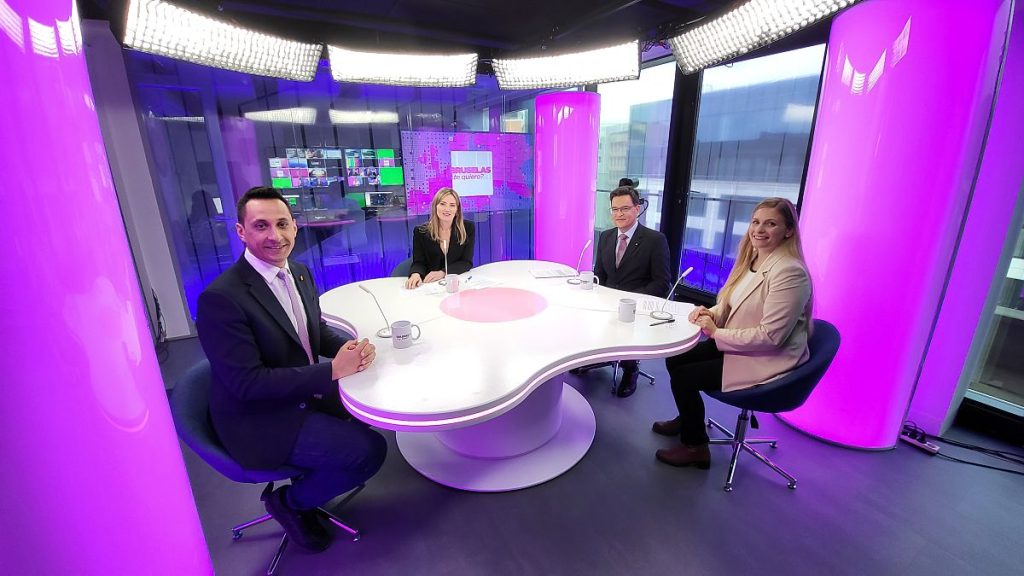Brussels, my love? delves into the potential threat of a second term for Donald Trump and how it could impact NATO allies. The question arises of how Trump would respond if a NATO ally were attacked by Putin – would he prioritize the interests of America’s closest partners, or distance himself from any responsibility to respond? With the recent statements made by Trump regarding Russia and the war in Ukraine, concerns have been raised about his approach to Europe if he were to return as Commander in Chief.
Ian Bond, deputy director of the Centre for European Reform, warned that Trump’s subservience to Putin poses a threat to America’s European allies. Bond highlighted Trump’s previous refusal to acknowledge Russia’s attacks on America’s democratic processes, stating that Trump essentially took Putin’s word over that of American intelligence agencies. While Tomi Huhtanen from the Wilfried Martens Centre cautioned against ‘Trump panic,’ he emphasized the need for Europe to be prepared and independent in terms of defense and security. The events of the January 6th insurrection in Washington DC, incited by Trump supporters, serve as a reminder of the potential consequences of a second Trump term.
Kaite Bolongaro, a journalist with M Lex, pointed out the challenges to democratic systems posed by Trump’s efforts to undermine them alongside his allies. The resilience of these checks and balances in the face of such threats is called into question, prompting concerns about their ability to withstand another Trump presidency. Vlad Gheorghe MEP from the Liberal, Renew Europe group in the European Parliament echoed the need for bolstered European defense capabilities, emphasizing the importance of not solely relying on American support. The call for Europe to strengthen its own armed forces and defense industries is seen as essential in light of the potential risks posed by a second term for Trump.
The implications of Trump’s rhetoric regarding Russia and Ukraine, as well as his previous actions while in office, highlight the need for Europe to be proactive and self-reliant in the face of potential challenges. The warning signs of Trump’s subservience to Putin and his disregard for American intelligence agencies in favor of Putin’s assertions underscore the precarious nature of America’s relationship with its European allies under a second Trump presidency. The events of the January 6th insurrection serve as a stark reminder of the fragility of democratic institutions and the need for vigilance in safeguarding them against potential threats posed by political leaders like Trump.
The issue of US support for European allies, particularly in the context of a potential return to power for Trump, raises concerns about the need for Europe to fortify its defense capabilities and security independence. The reliance on ‘Big Brother’ for defense needs to be reevaluated in light of the uncertainty surrounding America’s policies under a Trump administration. The urgency of tripling support to Ukraine and increasing investment in defense industries and military movements is underscored as a means for Europe to assert its own autonomy and preparedness in the face of potential challenges ahead. The necessity for Europe to stand on its own in defense and security matters is emphasized as a crucial aspect of ensuring stability and protection for NATO allies in the event of a Trump 2.0 presidency.
In conclusion, the discussions surrounding the potential repercussions of a second Trump term underscore the need for Europe to be proactive and self-sufficient in terms of defense and security. The warning signs of Trump’s subservience to Putin and his undermining of established democratic institutions highlight the need for vigilance and preparedness in the face of potential challenges. The calls for strengthened European defense capabilities and independence reflect the growing urgency of reevaluating reliance on American support in the context of a potential return to power for Trump. Europe’s ability to assert its autonomy and readiness in the event of a second Trump presidency is seen as crucial in safeguarding the interests of NATO allies and ensuring stability in the face of potential threats.


